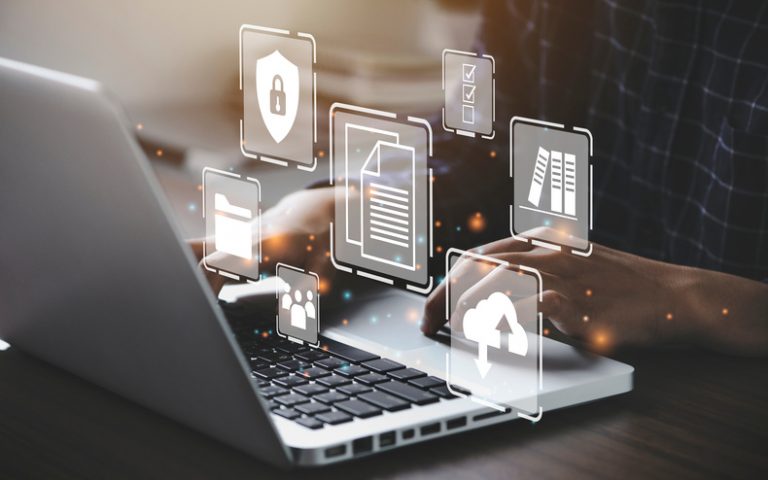6 Remote Access Solutions for Enterprises
Technology is one of those things that has changed the way many industries and sectors operate due to the introduction of new features. One of the major impacts of tech in the labor market, and subsequently organizations, is that it allows employees to work remotely.
While working remotely has its advantages, such as increased productivity, cybercriminals often try to exploit this by getting unauthorized access to confidential data. Hence, there’s a need for enterprises to create secure remote access for their employees. There’s a comprehensive overview of how an enterprise or company can provide secure remote access for their employees in this article. Let’s dive in!
Remote Access Solutions for Enterprises

Below are some of the methods organizations can employ to ensure there’s secure remote access for their employees and executives.
- Enterprise Browsers
A secure enterprise browser solution is one of the strongest methods of providing secure remote access for an organization to operate. To learn better about this, it is very important to know the meaning of enterprise browsers and how they work.
Enterprise browser is not like the commercial browsers most people use, such as Chrome, Microsoft Edge, or Firefox. Instead, enterprise browsers are a type of customized browser that was solely established to create a safe workspace for enterprises. These types of browsers were custom-made to meet the high level of security standards enterprises need to operate over the internet without falling victim to cyber-attacks.
In some other definitions, an enterprise browser is a locked-down browser that often employs isolation methods to ensure an organization is safe in its daily operations over the internet. So, the majority of the functions this type of browser allows are only those related to the organization’s operations. Hence, an enterprise browser is likely not to approve any non-productive or any activity not authorized by the organization. The importance of this type of browser is that it allows enterprise employees to work remotely without falling victim to cyber-attacks.
- LayerX Browser-agnostic Platform
The fact remains that commercial browsers often provide a better user experience than enterprise browsers, which might be limited in many functions. Moreover, many people are already used to using commercial browsers such as Chrome or Firefox. In cases like this, browser-agnostic platforms often provide a very important service in providing remote access for employees to work.
Browser-agnostic web security solutions allow users to keep their original browsers while deploying sophisticated web security technology. This technology comes in the form of a lightweight extension, and it immediately implements security policies that will help provide a secure working environment. A good example of a browser-agnostic platform is LayerX, which provides an optimal security framework for remote access. With a browser-agnostic platform in place, employees can easily work over the internet while staying safe from web attacks.
- Virtual Private Network (VPN)
Virtual Private Network (VPN) is an underrated security tool that many people often overlook, which is very important to web security. Many individuals often forget that hackers use very sophisticated tools in their quest to steal data and resources. Assuming one is surfing the internet without a VPN, hackers can easily gain access to your network activity and lay their hands on any data transferred through your internet connection.
This is where a VPN serves a very important purpose as it provides an encrypted network connection, preventing hackers from tracking your network activity. In the same way, any data you share over this type of internet connection is secure and can’t be accessed by a hacker. With a VPN, it provides remote access, whereby employees can stay anywhere and work without fear of unauthorized data access.
- Remote Desktop Protocol (RDP)
Remote Desktop Protocol (RDP) is a remote access solution that Microsoft originally provided, and it created a haven for enterprise employees. They could work using these RDP solutions without having to worry about cyber attacks due to the protection they got from them.
As the same suggests, a Remote Desktop Protocol (RDP) allows employees of an enterprise to connect and use a faraway computer with another computer. For instance, assuming an employee is traveling and needs to access a file in their computer at home, a Remote Desktop Protocol (RDP) creates remote access for this type of file. In other words, they can securely gain access to these files as though they were working on this faraway computer.
- Endpoint Security
Ensuring remote access is mostly to prevent cybercriminals from getting unauthorized access to sensitive data using a remote window. Hence, it is always important to establish endpoint security to ensure that any dangers related to malware and viruses are blocked. Endpoint security is very important to an enterprise as it often serves as the last ditch of security to help protect files from the hands of cyber attackers.
Originally, the major method enterprises used to ensure their endpoint security was using anti-malware software, but it is outdated now. Hence, the use of firewalls became very important as it offered the ability to create rules regarding how traffic should pass through a company’s network. With constant monitoring, firewalls are able to detect malicious activity and immediately shut down a particular traffic if there’s a need for it.
- Multi-factor Authentication Methods
Multi-factor authentication methods have become an indispensable security procedure for enterprises, which makes it necessary for organizations to integrate them. Multi-factor authentication (MFA) is a kind of security technology that uses and requires two or more credentials for verification purposes. In other words, once a user fails to provide these two or more credentials, they won’t be granted access to any file or resources.
Multi-factor authentication (MFA) usually requires users to verify a particular device, input a particular PIN or password, and verify an inherent property such as a fingerprint. With these processes, it ensures that the data and resources of an enterprise are only available to authorized users remotely.
Wrapping Up
Remote access solutions are incredibly important for enterprises if they don’t want to lose their data to cybercriminals. Since many companies now allow their employees to work remotely, they must provide a secure method through which employees can access data and resources.
Apparently, there are a lot of options when it comes to remote access solutions, which organizations can choose from. One of them that stands out is enterprise browsers, which are custom-built to protect the data of enterprises while working over the internet. Other forms of remote access solutions are browser-agnostic security platforms and Multi-Factor Authentication (MFA).






